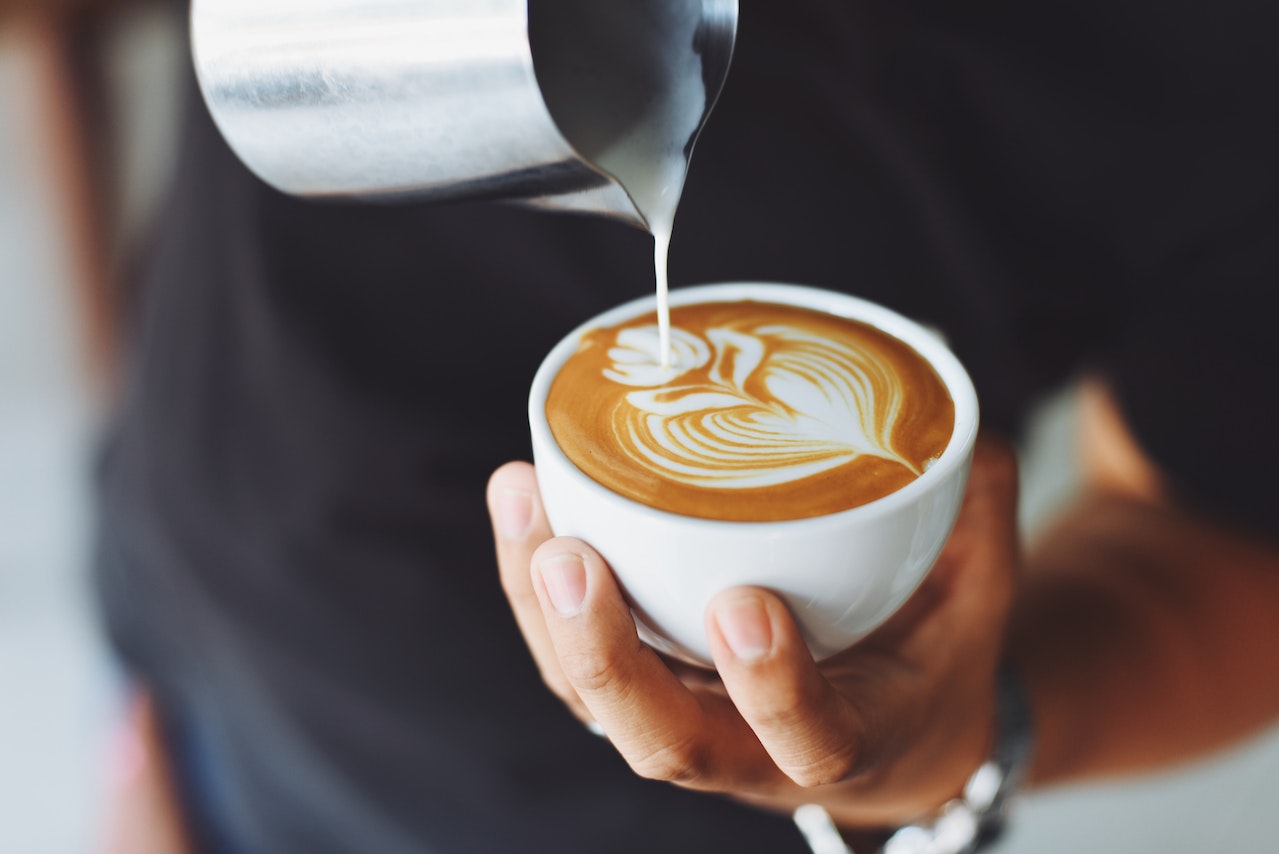Making a good cup of coffee at home can save you so much money. Sure, going to your local barista and getting a great cup is always nice, but it is also expensive, just imagine the money you could save if you did it yourself.

Getting the best automatic pour over coffee maker can help you to achieve great coffee, but using this method is only a part of it. You need to consider the many other aspects of good coffee too.
Making good coffee not only encompasses choosing a good quality pour-over coffee maker, but also using quality beans, and getting the coffee grind and coffee-to-water ratio right!
No matter how expensive your coffee maker is, if your beans and water are low quality, or if you are using incorrect ratios, your coffee is not going to taste very good.
So, today we will share with you 5 tips to ensure you brew delicious coffee at home every time!
1. Always Use Fresh, Whole Beans
One of the most important factors of what makes coffee taste so good and have that beautiful aroma is the compounds in the beans. Once the beans are roasted, these aromatic compounds start to escape from the beans.
Whole coffee beans release these compounds slower than pre-ground coffee. This is because the surface area of pre-ground is much larger than whole bean coffee. The larger surface areas means a higher release of gasses. You see, coffee beans act like tiny capsules (but eventually, they go stale too).
Grinding your beans just before brewing ensures you have the freshest possible coffee with all the oils and aromas preserved!
These days coffee delivery is as simple as placing an order online, so you are never without those fresh beans.
2. Measure Properly, Use Scales
Most of us are guilty of not properly measuring our coffee when we make a cup, although most of us have heard we should use 2 tbsp coffee per 6 oz water. This can be used, but you want something more precise.
Aim for 21 grams of coffee for 355 grams of water (1:16 ratio).
Do not forget that different coffees and different blends will differ in terms of density and size, so a tbsp of one coffee might weigh differently to another. Using scales can help you properly measure by weight, ensuring you know exactly how much you are actually putting into your coffee.
3. Always Grind To Suit Your Type of Coffee Maker
Different brewing methods require different coffee grind levels, from coarse to super-fine.
Taste and brewing time can help you tell if the grind was correct.. If it tastes bitter then your grind was too fine (over-extracted coffee). Iff it tastes sour, the grind level is too coarse (under-extracted coffee)..
For reference:
- Espressos require a fine grind.
- French Press requires a coarse grind.
- Aeropress requires a medium grind.
- Pour-over methods require a medium grind.
Knowing how to grind your coffee for your method of brewing can help to ensure that you always end up with a delicious coffee.
Pro Tip:
The grinder is equally as important as the coffee maker itself! Avoid blade grinders and instead, use a quality burr grinder!

4. Use Filtered Water, Not Tap!
98.5% of a cup of coffee is water, so you have to consider the water quality when you are brewing. If your water is of bad quality, your coffee will be too.
The tap water in your home might seem fine, but most tap water contains a lot of minerals, not all of which are healthy and will benefit your coffee. This is why you should always use filtered, purified water for your cup of coffee.
Bottled water will do well for this purpose as well, but sea turtles and your wallet might not be happy about it.
Do not use distilled water, even though it is pure, coffee does need some minerals to be as delicious as it should be.
5. Temperature Matters!
Most of us just let the kettle boil to boiling point then pour to make a coffee. However, coffee is not meant to be that hot. If you want to get the best flavors out of your coffee then your water needs to be at the right temperature.
Optimal temperature should be between 195 and 205 degrees Fahrenheit (90 to 96 degrees Celsius).
This is because temperature will affect how fast the speed at which the flavors are extracted from your coffee, but it also will impact what gets extracted as well.
If you brewed your coffee too cold it would not extract all the flavors and the acidity coffee has. However, if you brew it too hot, then it will be more bitter.
That 10 degree window is the sweet spot for a perfect coffee.